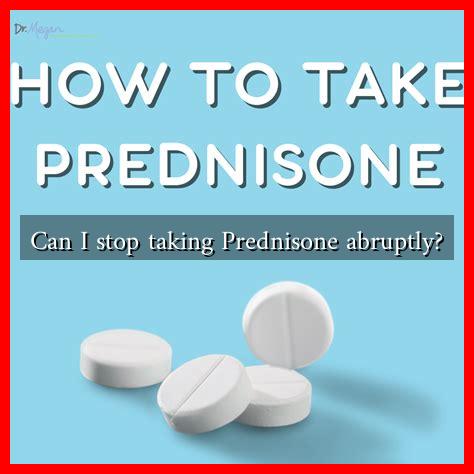-
Table of Contents
Can I Stop Taking Prednisone Abruptly?
Prednisone is a synthetic corticosteroid commonly prescribed to treat a variety of conditions, including autoimmune diseases, allergies, and inflammatory disorders. While it can be highly effective in managing symptoms, many patients wonder about the implications of discontinuing the medication. This article explores the risks associated with abruptly stopping prednisone and provides guidance on how to safely taper off the medication.
Understanding Prednisone and Its Effects
Prednisone works by suppressing the immune system and reducing inflammation. It mimics the effects of cortisol, a hormone produced by the adrenal glands. While prednisone can provide significant relief from symptoms, it also comes with a range of potential side effects, including:
- Weight gain
- Increased blood sugar levels
- Osteoporosis
- Increased risk of infections
- Mood swings and anxiety
Due to these side effects, patients may be eager to stop taking prednisone. However, it is crucial to understand the body’s dependence on the medication, especially after long-term use.
The Risks of Abruptly Stopping Prednisone
One of the most significant risks of stopping prednisone suddenly is adrenal insufficiency. When prednisone is taken for an extended period, the body reduces its natural production of cortisol. If prednisone is stopped abruptly, the body may not be able to produce enough cortisol to meet its needs, leading to a range of symptoms, including:
- Fatigue
- Weakness
- Body aches
- Low blood pressure
- Nausea and vomiting
In severe cases, adrenal crisis can occur, which is a life-threatening condition requiring immediate medical attention. According to the National Institutes of Health, adrenal crisis can lead to shock, seizures, or even death if not treated promptly.
How to Safely Discontinue Prednisone
Given the risks associated with abrupt cessation, it is essential to consult a healthcare provider before making any changes to your prednisone regimen. A doctor will typically recommend a gradual tapering process, which may involve:
- Reducing the dosage incrementally over a specified period
- Monitoring for withdrawal symptoms
- Adjusting the tapering schedule based on individual response
For example, a common tapering schedule might involve reducing the dose by 5-10 mg every week, depending on the initial dosage and the duration of treatment. However, each patient’s situation is unique, and a personalized plan is crucial.
Case Studies and Statistics
Research indicates that many patients experience withdrawal symptoms when tapering off prednisone. A study published in the Journal of Clinical Endocrinology & Metabolism found that approximately 30% of patients reported symptoms of adrenal insufficiency after stopping corticosteroids. This highlights the importance of a careful and monitored tapering process.
Additionally, a case study involving a patient with rheumatoid arthritis demonstrated that a gradual tapering approach led to a successful discontinuation of prednisone without significant withdrawal symptoms. The patient was able to transition to alternative therapies, such as methotrexate, to manage their condition effectively.
Conclusion
In summary, stopping prednisone abruptly can lead to serious health risks, including adrenal insufficiency and adrenal crisis. It is essential to work closely with a healthcare provider to develop a safe tapering plan tailored to your specific needs. By understanding the importance of gradual discontinuation and being aware of potential withdrawal symptoms, patients can navigate the process more safely and effectively. Always prioritize your health and consult with a medical professional before making any changes to your medication regimen.

